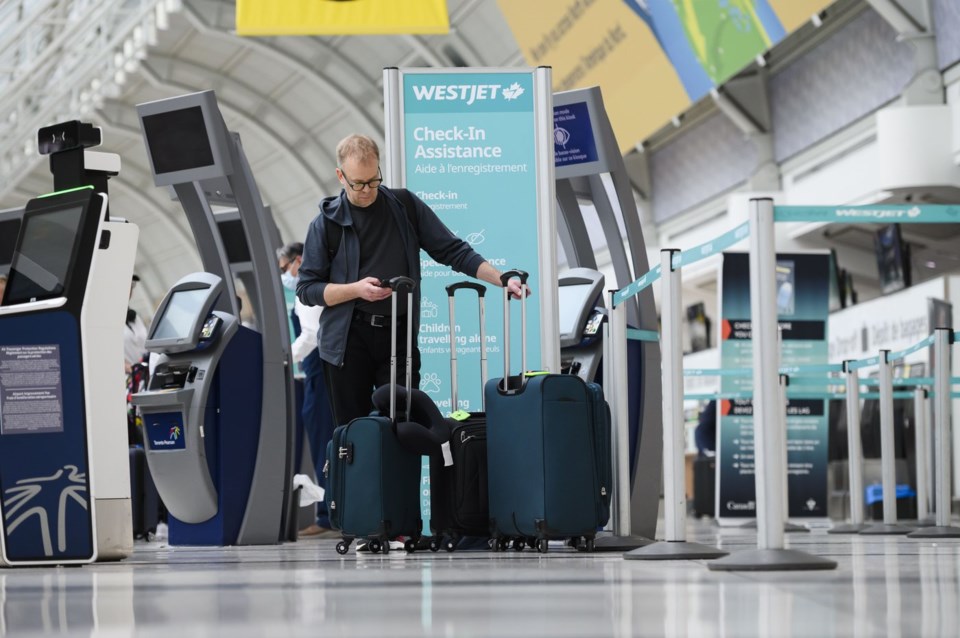A B.C. Supreme Court judge has barred WestJet from telling travellers their reimbursement for meals and accommodations is capped.
The ruling states that "passengers would suffer harm" if WestJet continued to communicate the policy to customers or post it on its website, which laid out fixed dollar limits on repayment amounts.
Until last summer, travellers forced to find a hotel room or restaurant due to a cancelled flight were told the airline would reimburse them up to $150 per night for accommodations — $200 if abroad — and $45 per day for food.
The policy excluded roaming charges, lost wages and missed events from reimbursement.
The Calgary-based airline has said it took down the post from its website in August and replaced it with rules that impose no ceiling for costs incurred due to a delay or cancellation within the carrier's control.
In court filings, it said its repayment approach is reasonable and that it has no plans to revive the previous policy.
“WestJet will consider reasonable requests for expenses incurred due to the subject flight disruption," it stated in an affidavit.
The company said in an email it does not comment on matters before the court.
The injunction comes ahead of a broader court hearing next year on whether WestJet is considering each passenger claim on its merits rather than imposing a blanket cap on reimbursement like before, despite having removed the web post.
The trial will also examine whether the company's communication around repayment was "deceptive," wrote judge John Gibb-Carsley on Friday.
In the latest case, WestJet failed to convince him that the upcoming hearing rendered moot the call for an injunction made by plaintiff Air Passenger Rights.
Gabor Lukacs, who heads the consumer advocacy group, said the need for a lawsuit in the first place suggests deep cracks in Canada's passenger rights regime, including around enforcement.
"The fact that it came to this point that we have to go to a judge of the Supreme Court of the province just to get a confirmation of what is in the law is a very, very troubling state of affairs," Lukacs said in an interview.
The complaint backlog at the Canadian Transportation Agency topped 80,000 as of late last year, resulting in wait times of up to two years.
Under the country's passenger rights charter, airlines must offer free "hotel or other comparable accommodation that is reasonable" if a traveller has to wait overnight after a trip disruption that was within the carrier's control.
Customers must also be granted "food and drink in reasonable quantities" for disruptions of more than two hours, the Air Passenger Protection Regulations state.
"The expenses always have to be reasonable," Lukacs stressed, noting that splurges at luxury hotels or five-star restaurants would typically be off limits — though pricey accommodations might still be reimbursable.
"Just imagine a situation in Calgary when there's the Stampede. Hotels are full. Then it may well be that the hotel room will cost you $1,500."
This report by The Canadian Press was first published Feb. 4, 2025.
Christopher Reynolds, The Canadian Press



